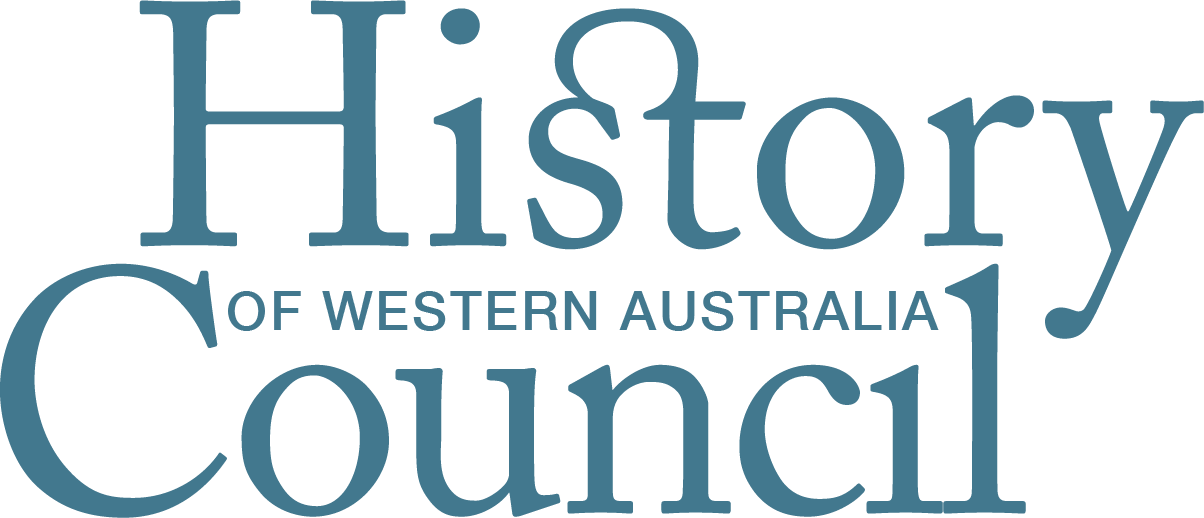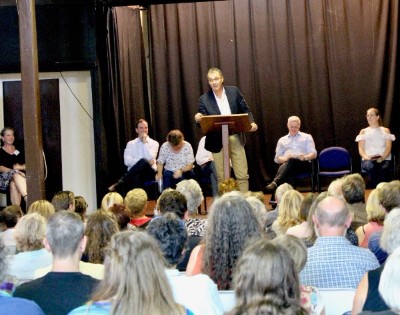2018 marks 150 years since Hougoumont, the last convict ship to arrive in Australia, docked at Fremantle. To commemorate the sesquicentenary a bevy of events were planned. In January RWAHS hosted a lecture, “Hougoumont and its Warders and Pensioner Guards” and in February Pamela Statham Drew gave a lecture: "WA Convicts: their lives and influence on the Colony". The WAGS Convict Group January Forum had special talks from Bevan Carter and Joanne Hyland on transportation. Robert Mitchell gave a talk, "Pensioner Guards and Local Forces", on 24 January at a joint RWAHS and WAGS event. RWAHS and WAGS also put on an exhibition at Stirling House. The SLWA Research Day was held on 15 February 2018 and Fremantle Prison is showing an exhibition, “Transportation”. Kidogo Arthouse in Fremantle hosted the Fenians Festival, a 10-day festival focusing on the 62 Irish Fenians (including those who escaped on the Catalpa in 1869) who were amongst the 280 Hougoumont convicts.
The History Council teamed up with the Digital Panopticon crew from the universities of Liverpool, Tasmania and Western Australia on Saturday, 10 February 2018 at Fremantle Prison. The Crown Theatre was packed with an attentive audience keen to see the ground-breaking “Digital Panopticon: Tracing London Convicts in Britain & Australia, 1780-1925” showcased at its WA launch and to listen to a feisty debate on “Convicts in WA: the Canker or the Cure?”.
Our Day of Convicts arose from a happy conjunction of events. The History Council was discussing the possibility of doing ‘something’ to mark the end of convict transportation to Australia. Then we learnt that members of the Digital Panopticon team were coming to Perth in early February. So we all put our heads together and came up with the idea of a day that would showcase the remarkable achievement of the Digital Panopticon team, followed by an entertaining debate. We then approached Fremantle Prison, who generously agree to host the day, thus giving participants the opportunity to visit their excellent exhibition, Transportation, and the chance to be in the space that was once inhabited by thousands of convicts and to touch walls, built stone by stone by convicts almost 160 years ago.
The Digital Panopticon website allows you to search millions of records from around fifty datasets, relating to the lives of 90,000 convicts from the Old Bailey. You can search individual convict life archives, explore and visualise data, and learn more about crime and criminal justice in the past. We were privileged to hear about its development from Professors Barry Godfrey (U. of Liverpool) and Hamish Maxwell-Stewart (U. of Tasmania) and to see a fascinating demonstration by Dr Lucy Williams (U. of Liverpool).
The Great Convict Debate was something else! Our fabulous History Council secretary and event organiser par excellence, Helen Munt, had set the scene by researching a quote from Antony Trollope:
"Then it called for extraneous help, and received it in the guise of convicts. But the very aid was an injury which has still to be endured, and, if possible, gradually cured."
Thus the debate topic, “Convicts in WA: the Canker or the Cure?”, and two star-studded teams were born. Team Canker (Melissa Etherington (UWA), Matt Trinca (National Museum of Australia), Barry Godfrey (Uni. Liverpool)) and Team Cure (Luke Donegan (Fremantle Prison), Harriet Wyatt (State Heritage Office) and Hamish Maxwell- Stewart (Uni. Tasmania)).
The Crown Theatre was packed, with a sharp and well-informed audience ready to boo and cheer at the mix of fantasy and fact each team presented to argue their case. One speaker spoke of the convicts as the nation builders of a utopia. There was laughter as Utopia, the ABC TV’s satire of government nation building, came to mind. The counterpoint was that in Fremantle the convicts built in limestone creating architectural eyesores and blinding the population. Another inventively argued that WA was characterised by greed for filthy lucre — first emerging when the British government was implored to send labour and money to the colony — then went to trace greed in WA history – a historical cavalcade of our best-known shysters and entrepreneurs followed, culminating in WA Inc. He went on to argue that convictism had created a grievous psychological trauma in the collective mind of West Australians — a case of 19th century post-traumatic stress syndrome. Others used facts to attack ‘psycho-babble’, arguing that the notion of convictism as a canker was false having been created by those with a vested interest in magnifying crime, and that ultimately it gave men the opportunity of a free life. The alternative argument was that WA received serious and persistent offenders, that most continued to offend, and that the system ground men down and should not be celebrated. One concluded with the words of a poem; “forget Anzac, let us not forget those knotted hands”.
It was an excellent day, enjoyed by all. Thank you to Fremantle Prison for hosting us and to all participants and organisers.

